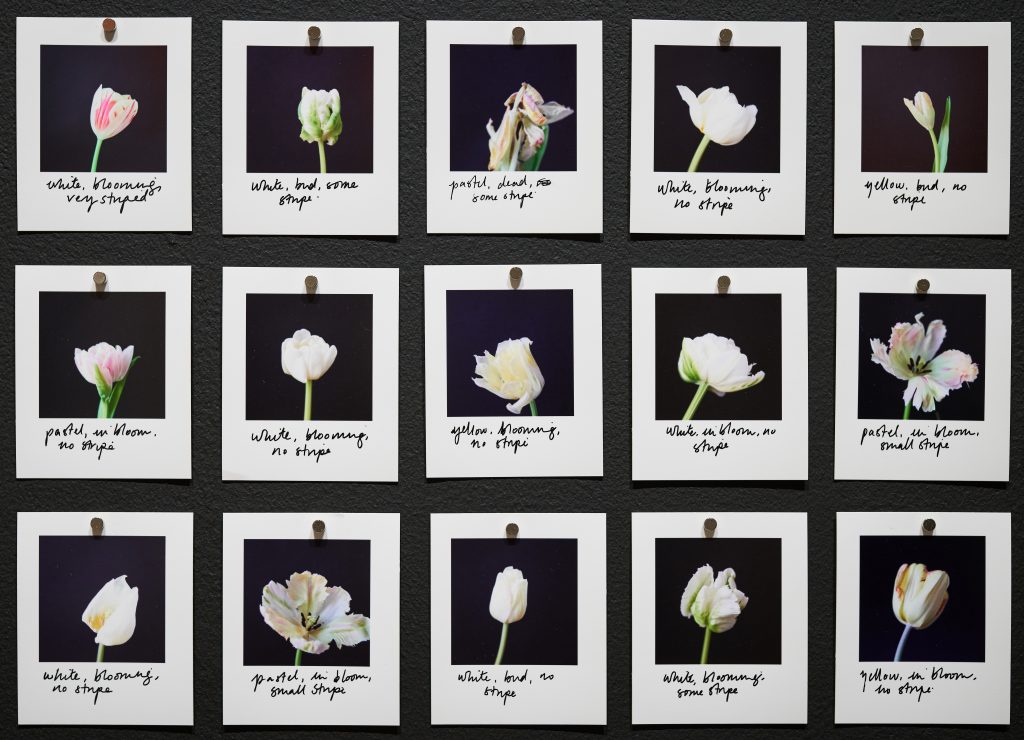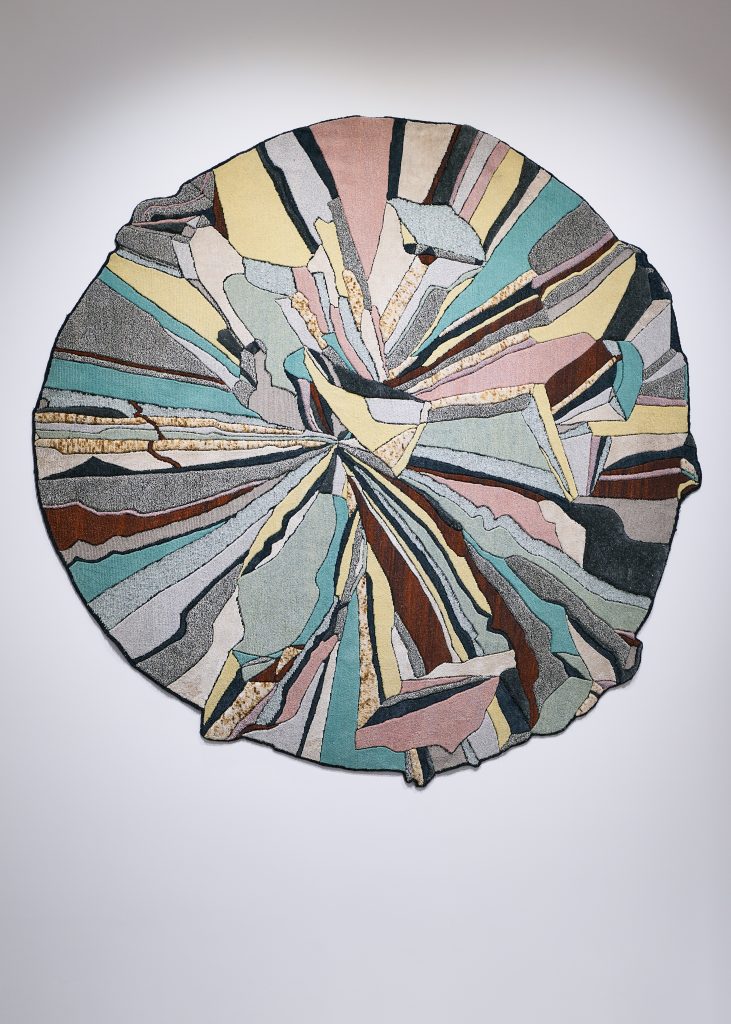
| Adaptive clothing range by Tommy Hilfiger, an electric flying car, the world’s first compostable pregnancy test and a pocket HIV device: Design Museum announces Beazley Designs of the Year nominees |

| The Design Museum announces the 76 nominees for the twelfth Beazley Designs of the Year exhibition and awards – revealing the most innovative designs of the last 12 months Nominees include a meme inspired dress collection by Viktor & Rolf, a data generated proxy address system created to reduce homelessness, the world’s first hands free breast pump, Adidas’s collaboration with designer Ji Won Choi, as worn by Beyoncé, food sharing app OLIO and The Shed’s extendable building in New York. Accessible designs represent a major theme in this year’s awards, as seen in IKEA’s ThisAbles collection, Tommy Hilfiger’s Adaptive clothing range and Chromat’s AW19 fashion collection. |

| Costumes designed by Sandy Powell for Oscar winning title The Favourite and the world’s first silent and hands-free breast pump; the Design Museum in London announces the most international and gender balanced list of contenders to date for the twelfth edition of Beazley Designs of the Year. The annual exhibition and awards comprises of 76 nominations across six categories: Architecture, Digital, Fashion, Graphics, Product and Transport. Selected by a panel of distinguished international designers, curators, critics and – for the first time – the general public, the awards showcase the most impactful products and concepts from designers around the world. Sketches, models, prototypes, videos and photography will be on display for all the nominations to provide a compelling snapshot of the current world of design. To reduce waste, this year’s 3D designer Pernilla Ohrstedt developed the spatial design for the exhibition by reusing elements from the previous exhibition. By cutting holes into the walls of each space visitors can look through to each of the nominated categories, creating connections between the works. The removed material has been recycled to make bespoke plinths. The inspiration for the design came from artworks by the American sculptor Gordon-Matta Clark, who would carve ‘building cuts’ out of the walls of derelict spaces around Manhattan. The fashion category includes vegan sliders from Rombaut, streetwear for Reebok created by Pyer Moss and Adidas’ Korean inspired Originals Collection, worn by Beyoncé. The meme inspired dress collection for Viktor & Rolf is also nominated in the fashion category, along with Chromat’s inclusive and sustainable AW19 collection – which demonstrate a new approach to inclusivity in the sector. Graphic nominee MOLD, by LinYee Yuan have explored the future of food through a new online platform and magazine which dissects how designers are addressing multiple food crises by working with food design and technology firms. Additional graphic nominees include: Kickstarter book, notamuse which profiles female graphic designers in Europe, an updated brand identity for the Wolves football team and works from Mona Chalabi, a New York-based data journalist and illustrator. This year’s exhibition also welcomes eight new typefaces for each category of nominations, developed over the last 12 months by 2D exhibition designers Zak Group. Product nominee CATCH was created to increase early detection of the HIV disease – with a low-cost and pocket-sized device that allows users to self-test for HIV in the privacy of their own home. Another innovative product nominee is silicone cover, MySleeve, which can be mounted on crutch handles to improve grip, comfort and stability. Other entries include the 1-inch Reclaimed Stacking Chair by Jasper Morrison for Emeco, made from leftover industrial waste materials, and British designer Bethan Laura Wood, who has created the handmade Super Fake rug collection inspired by diverse rock formations. Designs for women is a prominent theme in this year’s product nominations, with projects including the Elvie Pump, the world’s first silent and hands-free breast pumpdesigned to be worn inside a standard nursing bra, and a flushable and biodegradable pregnancy test designed to be discreet by all-female design team Lia. The transport section highlights designs that improve local services with the GACHA Self-Driving Shuttle Bus designed by MUJI in collaboration with Finnish company Sensible 4, promoting easy autonomous access to public transport in all weather. Alongside this is JUMP by Uber, an environmentally-friendly fleet of smart electric pedal-assist bikes and scooters rentable through your phone and the CanguRo, a mobility robot assistant that can both carry heavy shopping and transform into a three-wheeled motorcycle. This year’s focus on accessible design continues in the digital category with wearable virtual assistant AlterEgo, by MIT Media Lab, which silently detects electrical impulses from the skin surface and transmits these to the internal device – assisting those unable to speak out loud to communicate without needing to open their mouth. Additional nominations include Q, the world’s first genderless voice. Made from real voices, the linguists, technologists and sound designers behind Q aim to challenge gender bias in the artificial intelligence industry. Another innovative digital project is neighbour-to-neighbour food sharing app OLIO, designed by Tessa Clarke and Saasha Celestial-One already used by 1.5 million users in 49 countries to share surplus food that would otherwise be thrown away. The architecture category features many impactful projects including ProxyAddress by emerging British designer Chris Hildrey, which allows those facing homelessness to access support services by generating each user a consistent ‘proxy address’. Also appearing in this section is the MK Gallery in Milton Keynes inspired by the local urban area, expanding and contracting flexible New York arts venue The Shed and a new roof for the ancient souk of Homs in Syria by Ghassan Jansiz for the United Nations Development Programme – built in challenging conditions after the original roof was destroyed by conflict. A winner will be selected in each category and one overall winner will be announced on Thursday 21 November 2019. Previous winners have included Forensic Architecture for their Counter Investigations Exhibition, Sir David Adjaye OBE for the National Museum of African American History and Culture in Washington D.C, London 2012 Olympic Torch by Edward Barber and Jay Osgerby and Human Organs-on-Chips by Donald Ingber and Dan Dongeun Huh at Harvard University’s Wyss Institute. The museum welcomes Beatrice Galilee as the guest curator of this year’s exhibition. Beatrice has previously worked at The Metropolitan Museum of Art, as the Chief Curator of the 2013 Lisbon Architecture Triennale, Close, Closer, and has curated exhibitions and events around the world. This year’s judging panel will be chaired by Paul Thompson, Vice Chancellor of the Royal College of Art and previous Design Museum Director to celebrate the museum’s 30th Anniversary. Beazley Designs of the Year will be on display from 11 September 2019 – 9 February 2020. Previous Design of the Year Winners: 2018 Counter Investigations Exhibition by Forensic Architecture 2017 Sir David Adjaye OBE for the National Museum of African American History and Culture in Washington D.C 2016 Better Shelter by Johan Karlsson, Dennis Kanter, Christian Gustafsson, John van Leer, Tim de Haas, Nicolò Barlera, the IKEA Foundation and UNHCR 2015 Human Organs-on-Chips by Donald Ingber and Dan Dongeun Huh at Harvard University’s Wyss Institute 2014 Heydar Aliyev Center by Zaha Hadid Architects 2013 GOV.UK – UK Government website by GDS 2012 London 2012 Olympic Torch by Edward Barber and Jay Osgerby 2011 Plumen 001 by Samuel Wilkinson and Hulger 2010 Folding Plug by Min-Kyu Choi 2009 Barack Obama Poster by Shepard Fairey 2008 One Laptop Per Child by Yves Béhar 2019 Judges: Paul Thompson (Chair), Vice-Chancellor, Royal College of Art Sarah Douglas, Editor in Chief, Wallpaper* Yinka Ilori, Designer Martino Gamper, Designer Melissa Hajj, Product Design Director, Facebook OPENING TIMES AND TICKET INFORMATION: Open daily 10:00 – 18:00 (last admission 17:00) Free entry to the museum and its permanent collection Exhibition Prices: Adult £12.00 Child (6 – 15 years) £6.50 Student/concession* £9.50 Family (1 adult + 3 children) £18.50 Family (2 adults + 3 children) £27.50 Members go free Exhibition Design: 2D Designers: Zak Group Zak Group is an award-winning international design practice that gives shape to contemporary visual culture. Their focus is on creating identities and digital platforms for clients who value the transformative power of design. Their work takes shape across the full spectrum of visual media—from books, websites and printed matter to branding, exhibitions and typefaces. Zak Group was founded in London in 2005 with the belief that graphic design can make a meaningful contribution to contemporary visual culture. Founder Zak Kyes is an award winning Swiss-American graphic designer. His studio has produced acclaimed work for leading cultural institutions, artists and brands including Anne Imhof, Frank Ocean, M+, MMK, Paco Rabanne and Vitra. 3D Designers Pernilla Ohrstedt Studio is a London-based architecture and design working on projects that span the disciplines of architecture, installations and exhibition design. The studio produces work for and with international clients and collaborators such as Vitra, Wieden + Kennedy, The V&A, The Royal Academy of Arts among others. |
